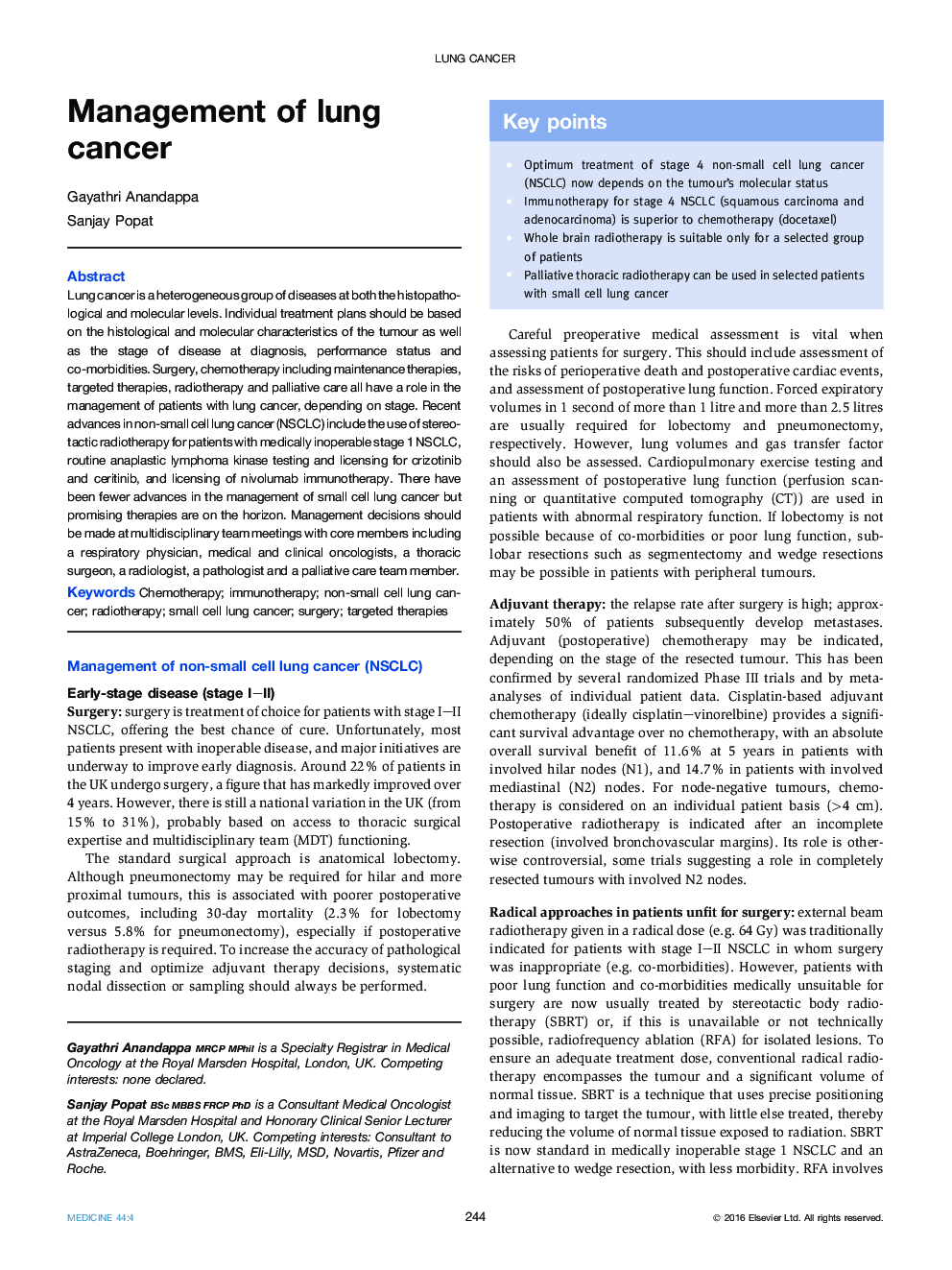| Article ID | Journal | Published Year | Pages | File Type |
|---|---|---|---|---|
| 3806145 | Medicine | 2016 | 5 Pages |
Lung cancer is a heterogeneous group of diseases at both the histopathological and molecular levels. Individual treatment plans should be based on the histological and molecular characteristics of the tumour as well as the stage of disease at diagnosis, performance status and co-morbidities. Surgery, chemotherapy including maintenance therapies, targeted therapies, radiotherapy and palliative care all have a role in the management of patients with lung cancer, depending on stage. Recent advances in non-small cell lung cancer (NSCLC) include the use of stereotactic radiotherapy for patients with medically inoperable stage 1 NSCLC, routine anaplastic lymphoma kinase testing and licensing for crizotinib and ceritinib, and licensing of nivolumab immunotherapy. There have been fewer advances in the management of small cell lung cancer but promising therapies are on the horizon. Management decisions should be made at multidisciplinary team meetings with core members including a respiratory physician, medical and clinical oncologists, a thoracic surgeon, a radiologist, a pathologist and a palliative care team member.
